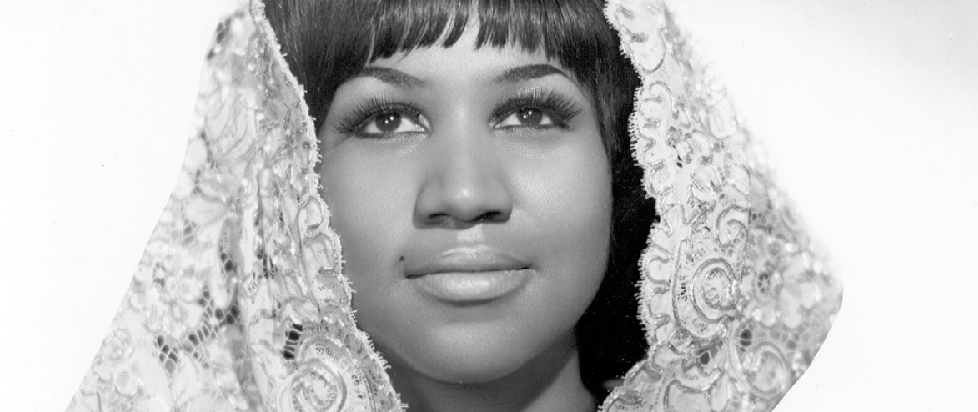
Aretha Franklin and the Price of Excellence
Social media has the annoying habit of announcing deaths, both rumoured and confirmed, before any measured and reasonable statement can me it in front of your eyeballs. I firmly believe the dead should be treated with respect, and not as a breaking TMZ announcement.
It was even weirder then, when on Monday, August 13th, the death of Aretha Franklin became a trending topic even though she wasn’t even dead yet. People were literally already sending thoughts and prayers out into the void and writing 280 character obituaries. I don’t care how close to death she was or how well-meant the sentiments were, I still have to take deep, steadying breaths every time I imagine a member of her family actually seeing these messages.
By the time she actually died the following Thursday, it was an expectedly anticlimactic moment. When someone like Aretha Franklin dies, it’s hard to tell a heartfelt response from platitudes. It’s completely possible that people just want to express themselves and resort to the same ways to do so. Not everyone has a unique story to tell, some people just like Aretha Franklin’s music and feel her death is a good opportunity to say so, in a fashion that befits her influence.
It’s just this influence that becomes increasingly hard to grasp as more people of her magnitude die. Some of the records certain musicians set will be broken, but Aretha was one of those who literally pathed the way for coming generations. To illustrate this, all I have to offer is my own story, a story I may easily share with many other black women when talking about Aretha Franklin. That’s exactly what makes her so special – I felt that the influence of her legacy of her legacy on my life was unique, when in reality it was anything but.
When I was 15, I was suspended from high school for the first and only time. Missing lessons is not used as a punishment where I live, so instead it was barred from after school clubs for a week. As the queen of after school activities, from the glee club to choir, drama club and the swing band, almost my entire social life depended on this clubs, so this punishment was deliberately designed to hit me hardest.
I was punished for telling my high school music teacher to take Aretha Franklin’s name out of his undeserving mouth. I used these exact words and still remember vividly the silence that descended like a collective inhale on an auditorium filled with kids that tuned their instruments. It was the culmination of a week of intense frustration at my first failed try to assert my blackness and thus my feeling of having something in common with a great black artist.
My high school music teacher was the head of all after school music activities. As such, we only played what he arranged, and he arranged the kind of music he liked best: Simon and Garfunkel, The Beatles. When I joined the swing band as a singer, I approached him about arranging the kind of music I listened to and was good at performing: the Surpremes, Alicia Keys, Stevie Wonder, Otis Redding, The Jackson 5. It took over a year for him to relent and arrange Aretha Franklin’s version of Chain of Fools for me. From then on, he would make jokes about how he’d always wanted to arrange more “black music”, how that was okay now since he the band had “an Aretha” now. The finished version of the arrangement had one whole verse for me to sing. The rest was instrumental backing and opportunities for solos.
I was disappointed, and infuriated, but what cuts into me until today is how the jokes continued. According to my teacher I was “going for a crown I couldn’t reach” and would “never be able to play piano by ear like Aretha. By using an artist I respected, he turned my own aspirations as well as my insecurities against me.
I finally snapped, because all of Aretha Franklin’s accomplishments should be celebrated. The fact that she learned piano by ear and was able to generate such love for church gospel stylings in pop and R&B is astounding, as many people steered clear of such music for its racial connotations. She became the first performer to be inaugurated into the Rock and Roll Hall of Fame. She stopped smoking, recovered from alcoholism and returned to performing several times after her cancer broke out. She was a very black American icon who used that status, as well as her money, to help people of colour as well as native people.
Through such achievements, Aretha Franklin became more than an amazing musician. It’s easy to make documentaries of people like Michael Jackson, Witney Houston or Johnny Cash, people who succumbed to the pressures of stardom and (thus) complicated private lives. They are part role model, part cautionary tale. No human being is perfect, and it is of course very important to acknowledge that, but in the dramatic fashion of an obituary, this mixture of admiration and regret isn’t easily expressed, so we often only settle for one.
Aretha Franklin was important to me not only because I know that had she known about me, she would never have put me down. She’s important to me because while excellence means pressure, both for the artist and those trying to follow in their footsteps, someone like her simply doesn’t come along anymore.
Something has shifted – in our consumption of music, in how we interact with the artists who make it, or even in their self-awareness and how they choose to present themselves. My heroes are dying, with no one to shine even remotely as brightly, especially among their own communities. When it was announced that Jennifer Hudson would take the role of Aretha Franklin in her upcoming biopic, I saw it as an obvious choice, not because it was a good choice, necessarily, but filmmakers now scramble to find a popular face and a connection to the artist, only to find that among black people, not enough people have been elevated into that position. When it came to singing one of Franklin’s songs publicly in her honour, the choice fell on Ariana Grande. When Whitney Houston died, it was Jennifer Hudson again. When David Bowie died, someone sent Lorde on stage. I have no better way to describe the lack of personalities similar to the powerhouses we lose than these examples.
Instead, I want to see the people thrive that were championed by such artists, and that proudly point to these roots. Being black was not my “ticket” to performing a song by Aretha Franklin. Looking at her should not be a case to show how many people in the black communities let go of their dreams, or failed when she belonged to the precious few who succeeded at penetrating the consciousness of the larger public. It should be an opportunity to loudly promote the excellence she saw in others and cultivated within herself.





